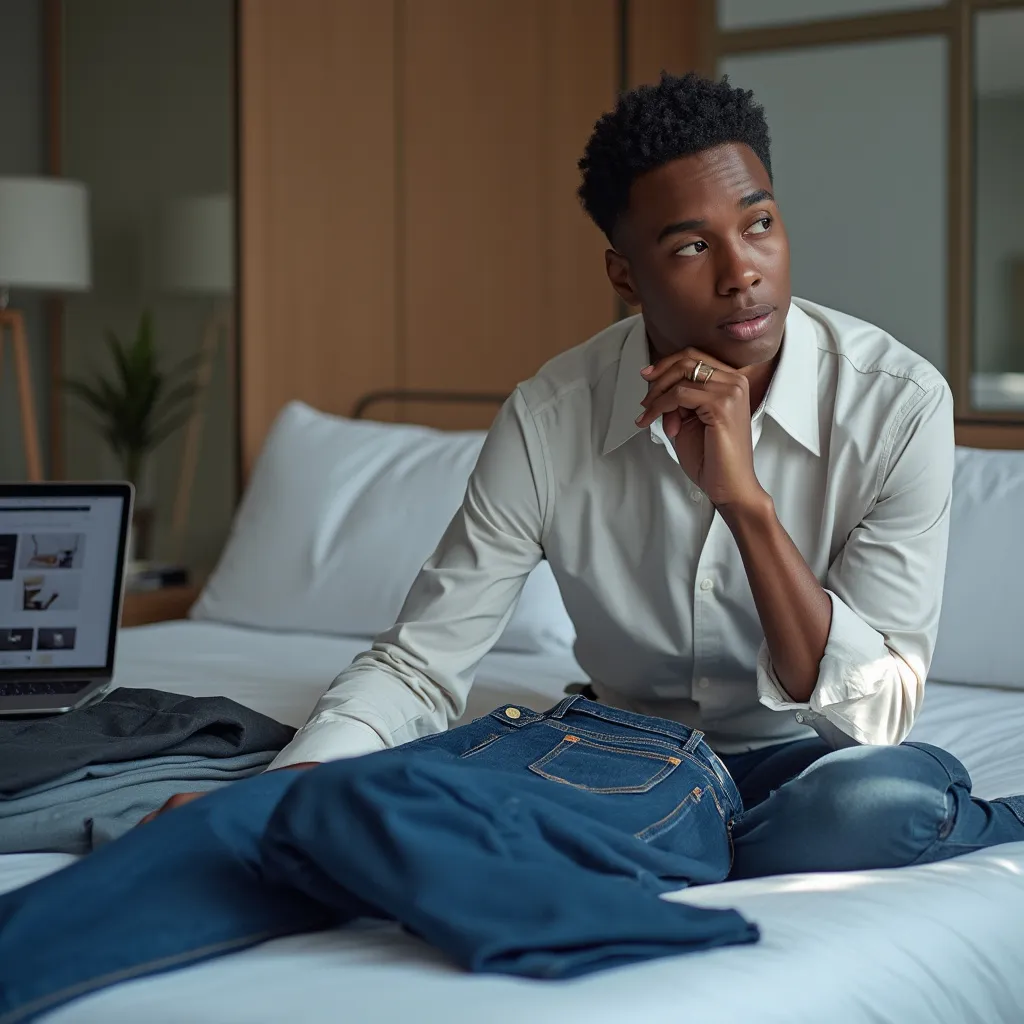In today’s evolving workplace culture, the once-rigid rules of interview attire have become increasingly nuanced. The question of whether jeans are appropriate for a job interview reflects this shift, with the answer depending on various factors including industry, company culture, and position level.
Understanding Modern Interview Dress Codes
American workplace attire has undergone significant casualization in recent years, particularly in tech hubs like Silicon Valley where dark wash jeans paired with blazers are now common even in executive roles. However, traditional industries and East Coast corporations typically maintain formal expectations—financial sector interviews still require suits in 89% of cases according to HR surveys.
This shift reflects broader changes in workplace culture, where hiring managers increasingly view attire as a test of candidates’ ability to read organizational norms. Many companies now use dress code as a signal of their values—tech companies often embrace casual attire as a symbol of innovation and non-hierarchical structures.
The general rule remains: dress one level above the company’s everyday attire. This demonstrates respect while showing you understand their culture.
When Jeans Might Be Appropriate for an Interview
Jeans may be acceptable in these specific scenarios:
- Tech Startups: 73% of Silicon Valley tech companies allow jeans in interviews for engineering roles
- Creative Fields: Advertising, design, and media companies often prefer stylish dark jeans showing personal flair
- Second Interviews: If first-round interviewers wore jeans, following their lead while maintaining polish may be appropriate
- Casual Friday Companies: Some organizations with established casual policies may accept jeans paired with dress shoes and a blazer
Before deciding, research the company thoroughly. Check their website, social media, and employee photos on LinkedIn. Pay attention to how they present themselves and their workplace culture. For virtual interviews, the same rules apply—visible professional attire matters even if you’re only seen from the waist up.
Choosing the Right Jeans for an Interview
If you’ve determined jeans are appropriate, selecting the right style is crucial:
- Color: Stick to indigo or black washes—92% of HR managers approve these darker options
- Fit: Select tailored straight or slim cuts—baggy styles reduce hireability by 40%
- Quality: Invest in rigid denim without fading or excessive stretch ($100+ price range ideal)
- Condition: Absolutely avoid distressing, rips, logos, acid washes, or fading—these reduce perceived professionalism by 68%
Regardless of gender, jeans should be clean, pressed, and free from wrinkles. They should fit properly—not too tight or too loose—and hit at an appropriate length.
How to Style Jeans for a Professional Look
The key to making jeans interview-appropriate lies in how you style them:
- Men: Pair with a crisp button-down shirt, possibly a blazer, and leather shoes (not sneakers). Consider brands like Levi’s 511 or J.Crew in dark washes.
- Women: Style with a structured blouse or button-down, a tailored blazer, and closed-toe shoes. For a more polished look, consider ankle-length styles from brands like Madewell or Everlane.
- All Genders: Always pair with Oxford shirts or blazers and leather shoes to elevate the overall appearance.
Accessories should remain minimal and professional—a quality watch, simple jewelry, and a professional bag or portfolio can complete the look without overwhelming it.
Better Alternatives to Jeans
When uncertainty exists about dress code expectations, these safer alternatives offer both comfort and professionalism:
- Chinos: Navy or tan versions work for 89% of business casual environments and offer similar comfort to jeans
- Dress Pants: Wool blends in gray or charcoal suit most industries and provide a more polished appearance
- Skirts/Dresses: Pencil cuts in midi lengths with closed-toe heels offer professional alternatives for those who prefer them
- Jumpsuits: Structured designs in dark colors work for creative fields as modern alternatives
These options create an “elevated casual” look that works across most industries and demonstrates professional awareness while maintaining comfort.
Industry-Specific Considerations
Different industries have vastly different expectations for interview attire:
- Finance/Law: 98% require suits—jeans inappropriate even at startups in these traditionally formal fields
- Tech: Engineers can wear dark jeans with blazers, but executives should still suit up in most cases
- Creative: Advertising, design, and media companies often appreciate personal style expression through well-styled casual attire
- Healthcare: Scrubs or business professional expected—no denim due to professionalism standards
- Retail: Expectations vary by position—managerial roles need slacks, while sales associates may use styled jeans in some cases
Regional differences also matter—East Coast businesses typically maintain more formal expectations than West Coast companies, even within the same industry.
Making the Final Decision
When deciding whether to wear jeans to your interview:
- Research Thoroughly: Check company LinkedIn photos and Glassdoor reviews mentioning dress codes
- When Doubtful: Opt for chinos/blazer combinations or other business casual alternatives
- Cultural Alignment: Match your outfit to employee photos + add one formality level
- Confidence Check: If you feel uncertain about wearing jeans, choose something else—confidence in your appearance affects interview performance
Remember that your interview outfit is part of your first impression. While many companies have relaxed their dress codes, erring on the side of more formal attire rarely hurts your chances.
Optimize Your Interview Preparation with ResuFit
While selecting the right interview attire is important, comprehensive preparation goes beyond clothing. ResuFit‘s AI-powered interview training can help you practice for specific interview scenarios with real-time feedback and answer recommendations. Combined with proper attire research, you’ll make a stellar impression from the moment you walk through the door.
For more guidance on interview preparation, explore resources on behavioral interview questions and developing the best interview skills to complement your professional appearance.
The bottom line: dress in a way that shows respect for the opportunity while demonstrating you understand the company’s culture. When in doubt, it’s better to be slightly overdressed than underdressed—you can always remove a blazer or tie to match the environment once you arrive.

